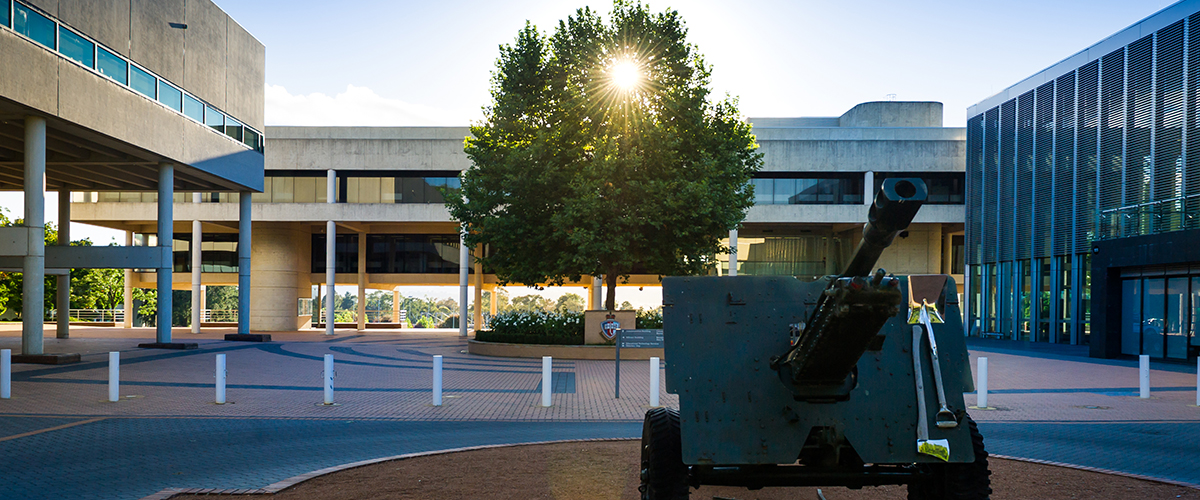Three UNSW Canberra projects receive ARC grants
Three UNSW Canberra-led projects have secured funding in the latest round of the Australian Research Council’s Discovery Projects grants, totalling more than $1 million.
Three UNSW Canberra-led projects have secured funding in the latest round of the Australian Research Council’s Discovery Projects grants, totalling more than $1 million.

Three UNSW Canberra-led projects have secured funding in the latest round of the Australian Research Council’s Discovery Projects grants, totalling more than $1 million.
The projects will be led by Professor Matthew Garratt, Professor Nicole Moore, and Dr Hemant Singh.
They are among 65 UNSW Discovery Projects to receive funding from the ARC’s Discovery Projects scheme for 2022.
The ARC Discovery scheme aims to expand the knowledge base and innovation in Australia and support research that will provide economic, commercial, environment, social and/or cultural benefits for the nation.
Professor Matthew Garratt has received $411,224 for ‘Efficient strategies for visually guided flight: from insects to drones’.
Flying in real environments, that are densely cluttered with obstacles, is a major challenge limiting the proliferation of aerial robotic technology yet flying insects such as honeybees accomplish this task with ease. This project will seek to uncover the salient vision-based flight-control strategies implemented by insects to deal with clutter.
These will be used to develop sensory and information processing frameworks for implementation in miniature robotic systems which will allow them to navigate autonomously in complex environments even when GPS positioning is denied. Such capabilities will expand the operational domain and potential applications for small autonomous vehicles while improving our knowledge of insect locomotion.
UNSW Canberra academic Dr Sridhar Ravi is also on the research team.
Professor Nicole Moore has received $215,000 for ‘Making New Readers: The Australasian Book Society and the Cold War’. This project aims to produce the first full history of one of the boldest ventures in Australian publishing.
The Australasian Book Society sought to develop new readers and writers in mid-century Cold War Australia. Using a rich web of archival sources, this project shows whether and how the Society met those ambitious aims.
New knowledge about the unique business model of a grassroots nationalist publisher will lead to deeper understanding of the development of Australian working-class writing and reading. This will afford new insights into Australian literary identity for a nation still committed to reading, an archive preserved for future generations and, for the determining global history of the Cold War, a revealing Australian case.
She will work alongside UNSW Canberra’s Dr Christina Spittel on the project.
Dr Hemant Singh has received $390,000 for ‘Evolutionary computation for expensive bilevel multiobjective problems’.
This project aims to develop an evolutionary computation framework to solve computationally expensive bilevel multi-objective problems. The research is fundamental in nature and will address key open challenges in solving such problems, including hierarchical decision-making, multiple performance criteria, uncertainties and computational expense.
The proposed research has applications in diverse domains such as environmental policy formulation, network design, engineering, defence and cybersecurity, offering significant benefits to the researchers and practitioners in these fields. In addition to research outputs, it will strengthen international collaboration and build research capacity to put Australia at the forefront of this research.
UNSW Canberra’s Professor Tapabrata Ray is also on the research team.
A number of other UNSW Canberra academics will collaborate on Discovery Projects led by other institutions.
UNSW Pro Vice-Chancellor Research, Professor Sven Rogge, congratulated UNSW’s academics on their research funding success.
“The DPs are highly competitive grants, and they drive much of Australia’s world-leading research addressing society’s most pressing challenges in Australia and beyond. It’s great to see UNSW researchers’ strong result again this year,” he said.
Find more of UNSW’s successful Discovery Project grants.